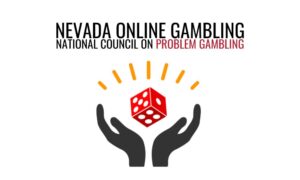
It would appear that even the most widely read news sources are subject to off days.
Leah McGrath Goodman’s piece “Poker Face” is so riddled with inaccuracies, propagandist sentiments and anti-online gambling opinions interpreted as indisputable truths, that one has to wonder if Sheldon Adelson ghost wrote the piece himself.
If the goal of Goodman’s piece was to inspire an emotional reaction from online gambling advocates, then it achieved that aim. If its intention was to reaffirm the need for better education regarding the strict regulatory guidelines invoked by the three US states where online gambling is currently legal, then it was a rousing success.
But where it failed is in providing a balanced, accurate depiction of the current state of online gambling in the United States.
And for that, I thank @truth_eater – not because I’m a fan of your article, but because it inspired rebukes like these:
11 Serious Problems With Newsweek’s Weird Tirade Against Regulated Online Gambling
Newsweek Paints Online Gambling as Threat to American Family
Johnny G Smackdown: Newsweek Shits the Bed on Regulated Online Gambling
I highly encourage readers to labor through Goodman’s piece, if only so they’ll feel compelled to read these truth-laden accounts from online poker’s industry experts.
The proverbial floodgates were already open, Leah
Goodman writes the following:
That terminology—“legislative process”—speaks to the consternation of a growing number of lawmakers who fear the Obama administration may have opened the floodgates to online gambling in the U.S. without ever intending it to be put to a congressional vote.
While it may very well be true that uninformed anti-online gambling opponents, such as Rep. Jason Chaffetz (R-Utah), feel that Obama and the DoJ are responsible for allowing online gambling to run amuck, it was her obligation as a journalist to relay the actuality of the matter – that online gambling became popularized in the United States long before U.S. Deputy Attorney General Virginia Seitz offered her opinion on the Wire Act.
How long before? Let’s see, the DOJ reversed its stance on the Wire Act in late-2011, and real-money online poker first became readily available to residents of the United States in 1999. So in reality, by the time Chris Moneymaker satellited his way into the Main Event, the floodgates were already long open.
Then and now: Unregulated vs. regulated online gambling
Goodman makes little effort to highlight the benefits of regulation, nor does she differentiate between legal and unregulated online gambling. As read, one would have absolutely no reason to believe that the iGaming operations in Nevada, New Jersey and Delaware are any less endangering to children and teens than those of Full Tilt Poker circa 2010.
This distinction needed to be made.
During online poker’s heyday (mid-2000’s), when offshore sites ruled the US, there was no regulatory framework in place. This made it significantly easier than it is now for say, 18-year-old kids to lift their parents credits cards, check off a little box that said they were over the age of 21 (if such a box even existed) and proceed to deposit funds onto an online account.
Under the state regulated system, registrants must provide sensitive information, including their Social Security Number, which is then cross checked against governmental and third party databases for accuracy. Only after their information is verified and they are deemed qualified, will users be entitled to play.
They can also elect to opt into what’s known as Strong Authentication, which will require them to input a time sensitive access code sent via SMS or email each time they log-in to their account.
Let’s take things one step further.
Problem gamblers, or those who don’t trust themselves to stay within their means, can choose to impose restrictions or bans upon their play. Cumulatively, these unique facets of regulated gambling do a more than serviceable job of preventing teens from running up sizable online gambling debts.
All Goodman had to do was point out these simple, yet monumental differences, or at the very least provide a quote from an authoritative source, in rebuttal to statements like:
Without strong rules in place, Chaffetz fears young people will be able to log on and start placing bets without much trouble. Many sites assume players are old enough to play if they simply enter a credit card. “In the physical world of bricks-and-mortar casinos, it’s easy to see a 13-year-old on a casino floor. On the Internet, there are no physical barriers, nothing stopping a child from becoming an addict,” he says.
Yes Mr. Chaffetz, it’s currently very easiy to create an online gaming account and play for real-money – that is of course, if the site is unregulated.
If anything, Mr. Chaffetz should be thanking states that have regulated online gambling, because in those states, offshore sites that DO pose a risk are pulling out in droves.
Here’s a couple of examples of what’s happening in states that feature iGaming operations:
Winning Poker Network Exits New Jersey, Delaware and Nevada “Effective Immediately
Merge Network to Exit New Jersey, Delaware Markets
Bovada Restricts Players From Nevada and Delaware
Just the fact that Goodman never bothers to challenge any of Jason Chaffetz statements, despite their inaccuracies, is a testament to the unbalanced nature of her piece.
Making sense out of Goodman’s social gaming diatribe
Goodman spends a good portion of her piece pairing social casino games with real-money online gambling. To what aim, I’m not entirely sure.
Perhaps she was indicating that children who start off playing social casino games are more prone to the perils of gambling addiction further down the road. If so, it’s never made clear.
And given the article’s sub-title: “How Washington Opened the Floodgates to Online Poker, Dealing Parents a Bad Hand,” the social games argument has little place within the context. Here’s why:
The reinterpretation of the Wire Act had absolutely nothing to do with social gaming, which would undoubtedly still exist if the DoJ never reversed its position.
Granted, gambling addiction in children is a very real thing, and I’m glad the topic was addressed. But outside of banning every Internet game under the sun, whether a gambling game or otherwise, the best approach is:
- Educate parents and other authority figures regarding the early warning signs of gambling addiction
- Implement stronger regulatory protocols so that the incidence of addiction is minimized
Well guess what, these standardized regulations already exist in New Jersey, Delaware and Nevada, and they will exist in every other state that eventually decides to legalize online gambling. Where they don’t exist is in MMORPGs, social gaming arenas, and multi-player console games such as Call of Duty.
Last month, New Jersey took in approximately $10 million in gross revenue from its iGaming industry. In Q1 of 2013, Facebook alone reaped $213 million, most of which was from social games where there is absolutely no chance for users to benefit financially.
Yet somehow online gambling and Washington’s refusal to inhibit liberty is the biggest issue.
Banning online gambling on a Federal level will work about as well as Prohibition
Prohibit booze, and addicts will find a way to procure it illegally. Remove regulated online gambling from the U.S. and addicts will find other ways to play, either be it at an offshore site, an underground club, or by moving to a locale where online gambling is deemed permissible.
Inconvenience didn’t stop drinking in the 1920’s and it sure as Hell won’t stop online gambling now. In fact, the allure of doing something illegal may entice children to engage in a potentially addictive activity more so than if the act were regulated and legal.
And unlike Mr. Chaffetz, I can back up my claims: According to a report published by Arjel in 2013, the incidence of problem online gamblers in France is down from 8.3% to 6.6% since regulated online gambling was first introduced.
Should government buy into Chaffetz’s and Adelson’s nonsensical and unproven claims, then it’s very well possible that these two figureheads of the anti-gambling movement will facilitate the growth of the very thing they’re fighting so hard against.
Ironic.
Other inaccuracies
Besides being unbalanced, one-sided, confounding and propagandist, Goodman’s article is riddles with falsehoods. I’ll refrain from going into detail, as all of the articles mentioned in the introductory section of this piece do an exemplary job of pointing out her inaccuracies, but here’s just a smattering of the fallacies that permeate her work:
- Quoted from Lindsey Graham: “Now because of the Obama administration’s decision, virtually any cellphone or computer can again become a video poker machine.” Except that it can’t in all but two states. Goodman does not rebuke this statement.
- When has a geolocation failure ever allowed someone outside of New Jersey or Nevada to play poker on a regulated site? If anything, geolocation is so strict that players located within the state’s confines sometimes have trouble logging on.
- Chaffetz claims that “if we don’t move quickly and get some decent regulations in place, which we really don’t have right now, it will be too late to stop [Internet gambling] from reaching all the states.” So, what you’re saying is that if better regulations aren’t set forth, then your state of Utah will legalize online gambling? Just stop, you can’t win.
- According to Goodman, the reversal of the Wire Act as applied towards online gambling undid “50 years of legal precedent.” Last time I checked, my Great Aunt Hilda wasn’t spending her time check raising donkeys online in 1964, but OK.
- The ban on horse racing was preserved? According to Goodman, the answer is a resounding yes.
My hope is that the fallacies present in Poker Face will continue to evoke strong reactions from the online poker community. At least that way, regulated online poker awareness will spread. Based on what I read today, we need awareness more than I thought.
Should that happen, I will personally thank Goodman for taking Sheldon Adelson’s and Jason Chaffetz’s ignorant viewpoints.







